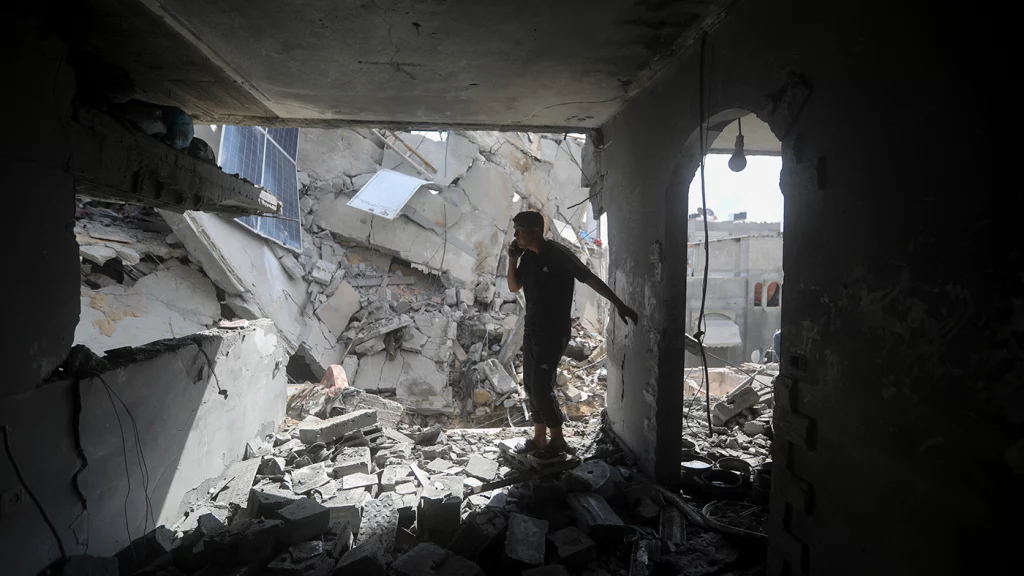
The White House on Tuesday pushed to finalize a cease-fire agreement that would pause fighting in Gaza, even as Israel carried out a limited military operation to take control of a key border crossing into Rafah.
The U.S., along with Egypt and Qatar, has worked for weeks on a truce proposal between Israel and Hamas that would secure the release of Israeli hostages. And while Hamas on Monday said it had accepted an offer for a temporary cease-fire, Israel said the group’s terms fell short of its core demands.
Israeli Prime Minister Benjamin Netanyahu is laying down a high-stakes bet that launching military operations on the southern Gazan city of Rafah will increase pressure on Hamas.
“The first priority is to maximize the option for the deal … that is what the maximum pressure is about,” Israel Ziv, former commander of the Gaza Division and former head of the Israeli Operations Directorate, told reporters Tuesday morning.
White House national security communications adviser John Kirby told reporters Tuesday the U.S. was closely monitoring Israel’s actions in Rafah, though he indicated it did not rise to the level of a full-scale military operation that U.S. officials had warned against. The operation, Kirby said, was aimed at cutting off Hamas’s ability to ship arms across the border into Rafah.
“How they’ve described this is not of a size, scale, duration and scope that one could equate to a major ground operation. But again, it’s just started,” Kirby said. “The president was very clear yesterday about his consistent concerns on that. So we’re going to keep watching it.”
“We don’t support operations in Rafah that put at greater risk the 1.5 million people that are seeking refuge there,” he added.
Israel Defense Minister Yoav Gallant said Tuesday that Israeli forces were prepared to deepen their operation in Gaza if cease-fire talks fell through, a sign of the precarious state of play in the region.
CIA Director Bill Burns, who has led U.S. efforts in the talks, reportedly arrived Tuesday in Cairo, along with delegations from Israel, Hamas, Egypt and Qatar.
The White House has for months tried to secure a cease-fire agreement in Gaza that would free hostages taken by Hamas during the attack in Israel last October, while also allowing more humanitarian aid to get into Gaza, where more than 34,000 Palestinians have been killed and tens of thousands more are without adequate food, water and medicine.